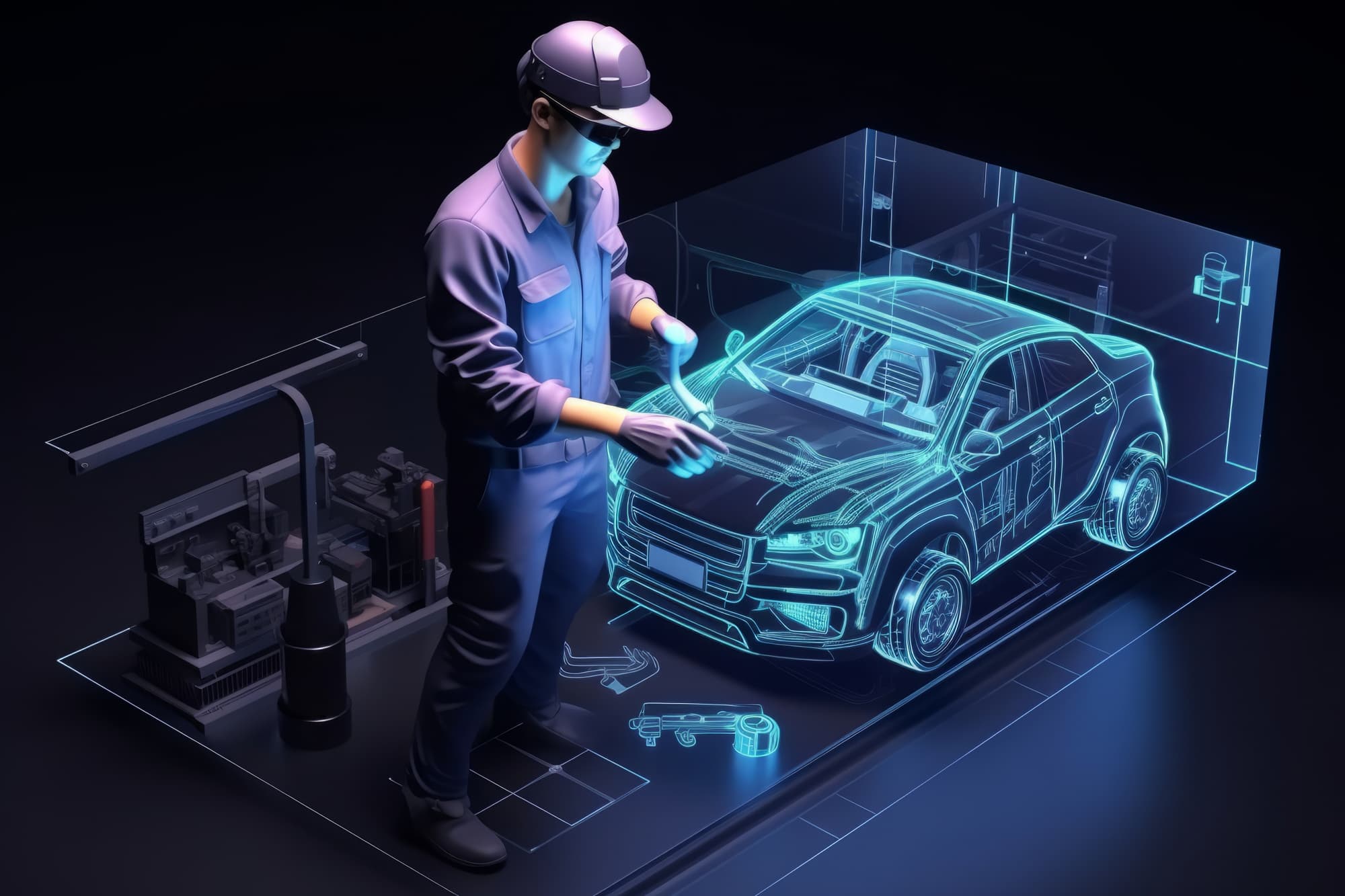The automotive industry is one of the sectors that have benefited tremendously from blockchain technology. Just like any manufacturing and supply chain industry, the automotive sector has, for the longest time, been grappling with challenges such as hacked systems, poor tracing of raw materials, counterfeit vehicle components, and other problems.
But thanks to blockchain technology, auto manufacturing companies can now take full charge of their daily operations without worrying about what could go wrong. Key players in the automotive industry, manufacturers, dealers, suppliers, and consumers, can trust blockchain for data safety, secure transactions, speedy operations, decentralized processes, easy-to-monitor records, and immutability.
Understanding Blockchain
Blockchain is a self-regulated broadcasted ledger that compiles and stores records in blocks. Blockchain has filled transparency, security, and supply and chain gaps that have cost many automotive industries a lot of money.
Alongside other innovations like Machine Learning (ML), the Internet of Things (IoT) and Artificial Intelligence (AI), blockchain is a force to reckon with that your automotive business should start considering if not already started utilizing.
As a car dealer or manufacturer, you can readily find a blockchain developer to create an automotive supply chain system to streamline payments and enhance real-time traceability and other perks the technology offers. How exactly has blockchain transformed the automotive industry?
Top Use Cases of Blockchain in the Automotive Industry
For a better understanding of how blockchain is working in the automotive sector, look at the following use cases:
Car Sales and Hiring Services
The automotive business is a lucrative yet delicate venture that, if not well-executed, anything could go wrong. For example, changing car ownership is a critical part of a car-selling process that requires utmost transparency when handling responsible documents and facilitating safe transactions.
Car dealers can rely on this technology to streamline car sales processes that would have taken longer when operated manually. This is because manual processes take many steps, including drafting and verifying the transfer contracts and payments. Additionally, car buyers can count on blockchain’s transparent records to confirm the covered miles and other related data when buying a second-hand car.
The best part is that brokers are not involved in these processes because blockchain works with self-executing smart contracts. Before issuing a vehicle, car leasing companies can rely on smart contracts blockchain to assess a client’s driving license and financial capability.
The automated car leasing process also allows companies to track their fleet after surrendering them to clients.
Supply Chain Supervision
The supply chain process is one of the automotive industry’s primary use cases of blockchain. Naturally, the supply chain comprises several activities, including procuring raw materials, spare parts provision, assembling, storage, and distribution logistics.
It may prove hard to track or trace the movement of raw materials, whether transported by road or shipping, without a robust system like blockchain to facilitate tracking and uphold transparent transactions.
Original Equipment Manufacturers (OEMs) can track components in transit using sensors and identification tags. It will help to get real-time details on the location, quantity, and time. Data distribution is visible to all parties, not forgetting an encrypted security layer that only grants users access to those authorized.
Auto Insurance
Automotive insurance can leverage blockchain technology, such as smart contracts to verify consumer identity, preventing fraudulent claims and misguided policy issuance, which are common problems insurers face.
Blockchain provides real-time and accurate information that allows insurance companies to make informed choices when validating client submissions. More importantly, blockchain innovation protects auto insurance providers from losses caused by an easily manipulative system.
Communication between insurers and clients happens on the blockchain network in real-time instead of emailing. Other methods that might not be as effective as it is. Also, no paperwork and intermediaries during insurance eligibility evaluation or claims processing, saving time and money for all parties. It also enable companies to serve more clients quickly.
Blockchain technology can also facilitate lower premiums because insurance companies do not need to spend heavily on manual record keeping that rise the administration fees.
Carsharing and Ridesharing
It is expensive to own a car in most parts of the world. This is influenced by the skyrocketing fuel prices, such as diesel, which sold at over $5 per gallon in the US earlier this year. Fuel prices notwithstanding, people can conveniently move from one place to another using rides-sharing platforms that have been developed.
These ride-sharing apps have digitized their services. Now drivers and clients can transact over a blockchain smart contract without involving a third party. Both driver’s and riders’ information is safeguarded in a decentralized ledger without the fear of being compromised.
Additionally, riders can access a driver’s database before requesting a ride to learn a thing or two about them. After dropping off riders, drivers are automatically paid through smart contracts. In a carsharing scenario, agreeing parties can use blockchain development services to create binding agreements that no one can bypass. The technology locks cars and unlocks them when a digital transaction from a customer is confirmed.
You may read also: Unlocking Creativity: Exploring Gpt66x Innovative Features
Autonomous/Self-Driving Car Developments
Have you heard about self-driven cars, the newest automotive industry innovation that will change how things work? Blockchain technology is set to facilitate autonomous data and driving in cars, whereby vehicles will rely on data to function.
The cars will use autopilot mode to run tasks and park themselves by obeying commands from decentralized and localized data. The autonomous feature will make it easy to check vehicle records such as fuel consumption and distance covered in real time. The technology also alerts car owners about impending mechanical appointments, a significant milestone in the automotive industry.
Counterfeit Components Containment
The availability of fake auto spare parts in the market affects car manufacturing industries. Because their stock barely moves when there is a high concentration of such materials, which are sold at affordable prices.
It is not only a dangerous trend that endangers the lives of motorists but causes EOMs to suffer losses. However, spare parts manufacturers and dealers can stop counting their losses by adopting blockchain technology. It will track and prove the provenance of their components in the supply chain using Radio Frequency Identification (RFID) tags.
Conclusion
Blockchain technology is helping many industries realize their full potential; the automotive sector is no exception. Car manufacturers, ride sharing services, and dealers can enjoy uninterrupted workflows to boost their services.
The encrypted technology reduces fraud occurrences that have long caused havoc in the industry by streamlining transactions and eliminating brokers. The future of automotive industry looks promising with adaptation of blockchain technology, which is here to stay from the look of things.


